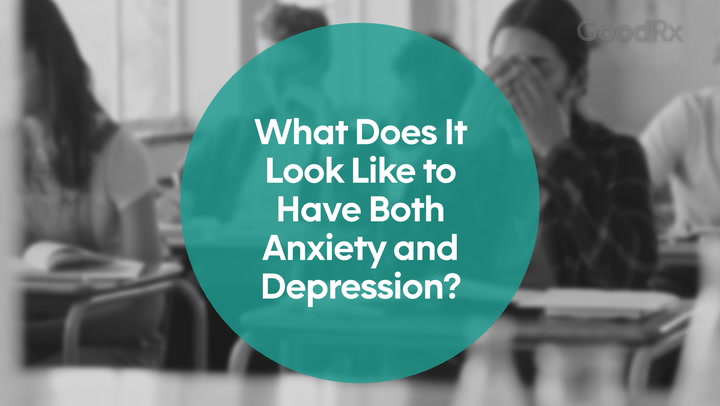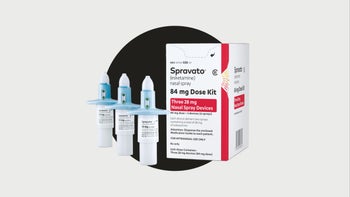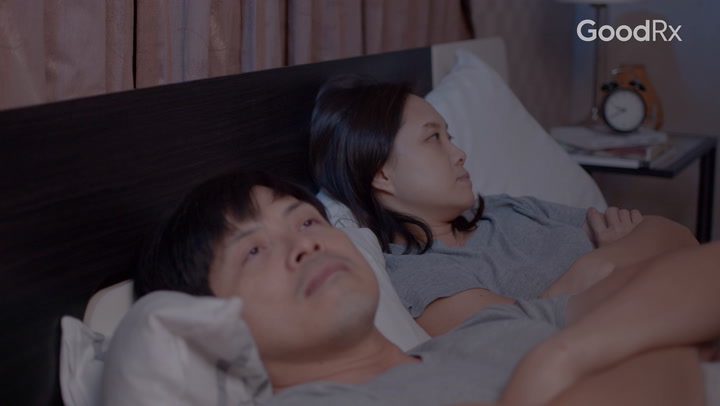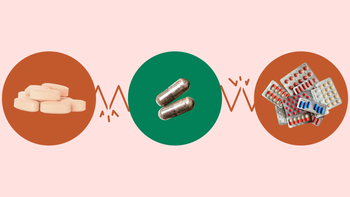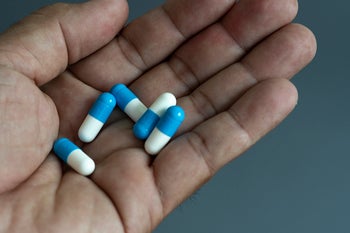
10 Natural Ways to Fight Your Depression
Key takeaways:
There are many natural ways to fight depression, including mindfulness, spending time in nature, and connecting with your support system.
You can combine natural remedies with medication (and therapy). It doesn’t have to be one or the other.
If your depression is not improving or if you are having suicidal thoughts, seek professional help right away.

Depression is a mood disorder that can make you feel sad and tearful. It can affect your appetite, sleep, energy level, and emotional state. But, even though depression can feel awful, there are ways to fight it.
For some, that will involve getting mental health treatment through medication and therapy. But, whether you turn to medication or not, there are natural, mood-boosting strategies that you can benefit from. What’s more, you can do most of them on your own.
With a little trial and error, you can build your own toolkit of natural remedies to help you fight your depression.
Search and compare options
What are some natural ways to fight depression?
Here are 10 natural remedies that people turn to for depression — and information about the science behind them.
1. Mindfulness
Mindfulness is the practice of being aware of what you’re experiencing in a given moment without judging or trying to change it. Studies on mindfulness meditation have found that it can help reduce depression, anxiety, and stress.
If you’re new to practicing mindfulness, you can start by taking a few minutes to find a quiet place to either sit or lie down. Try to focus on your breathing and notice your inhales and exhales.
As you practice, you might notice that thoughts or feelings come up. Instead of latching on to them, simply allow them to drift away. It may be challenging in the beginning, but over time you will improve your ability to stay in the moment.
If you’d like to try guided practice, you can do an internet search for mindfulness videos or download a mindfulness app.
2. Acupuncture
Acupuncture is a form of Chinese medicine that has been used for the treatment of various physical and mental health ailments. During the treatments, thin needles are placed on different parts of the body to stimulate the flow of qi, or energy.
Research on acupuncture suggests that it may slightly reduce depression symptoms, but not enough to qualify as an effective treatment on its ownt.
3. Exercise
Research on exercise has found that it can help reduce symptoms of and prevent depression, especially if it is combined with medication. This could be any type of physical movement with your body, like running, walking, weight training, or stretching.
You can start with just 15 to 30 minutes of movement a day — in a gym, outside, or even in your home — and work your way up to more. Chores like gardening and cleaning the house can count as exercise. Or you can exercise with others, whether in a fitness class or a local walking group.
4. Healthy diet
Eating a diet rich in essential vitamins and minerals has been associated with better physical and mental health. To achieve this, focus on incorporating plenty of vegetables, whole grains, and unprocessed foods.
There is also some evidence omega-3 fatty acids may be helpful for depression. You can try omega-3 supplements or eat foods naturally rich in omega-3. such as:
Fatty fish like salmon, tuna, herring, or trout
Walnuts
Soybeans
Flaxseed, canola, or soybean oil
Refried beans
Edamame
5. St. John’s wort
St. John’s wort is a popular herbal supplement that has been used to treat various ailments, including depression. Research suggests that St. John’s wort is associated with some improvements in mild to moderate depression.
However, experts caution that there is not yet enough research to say whether this herbal supplement is an effective treatment for depression. It also interferes with many medications for depression. So, if you’d like to try it, speak with your provider first to check for potentially harmful interactions.
6. Social support
Isolating yourself from family and friends is a common symptom of depression. And, unfortunately, it can make you feel worse.
Research shows that getting support from people can help improve depression. Pushing yourself to call or see a loved one can be hard at first, but over time it can help you feel less lonely.
You can also consider going to a support group for people with depression. Groups offer you a chance to feel understood and learn new coping skills. The National Alliance on Mental Illness (NAMI) provides free support groups for people with mental health conditions. You can call NAMI’s helpline at 1-800-950-NAMI or visit their website to find a local in-person or online meeting.
7. Sleep
Getting good sleep is important for your mental health. Almost 75% of people with depression have insomnia, or an inability to sleep well. And poor sleep is not just a symptom of depression; not getting enough rest can increase your risk for developing depression.
If depression is affecting your sleep, consider the following tips to help you get better rest:
Limit your caffeine intake to only once in the morning. Avoid consuming caffeine in the afternoon and evening hours. And remember that caffeine can be found in coffee, tea, soda, energy drinks, chocolate, and some ice creams.
Avoid alcohol, stimulants (including nicotine), and electronic devices before bed.
Engage in some form of exercise regularly, but avoid exercise in the evening hours.
Create a bedtime routine to help your body and mind prepare for sleep. Your routine might consist of a relaxing activity, like reading, followed by brushing your teeth and getting yourself ready for bed.
Make sure your sleep environment is comfortable. Some people find that a cool, dark room with some white noise in the background is optimal for sleep.
If your sleep problems are severe or persist, consider speaking with a healthcare professional or therapist.
8. Journaling
Journaling is an activity where you write about your thoughts and feelings. It gives you the chance to reflect on what you have been through, think through problems and find solutions, and tap into creativity.
There is some evidence that journaling may be helpful for a range of mental health conditions, including depression. You could begin a journaling practice by freely writing about your experiences or by following a journaling book or prompt.
9. Nature
Spending time in nature is another easy, natural way to fight depression. Walking, hiking, spending time at the beach, and meditating outdoors are all ways to increase your connection with nature.
Also, there is a relationship between depression and vitamin D deficiency. And spending time outdoors in direct sunlight is a great source of vitamin D.
10. Volunteer and help others
Volunteering is one way to expand your social network and build connections with others, which has been shown to be beneficial for depression. It can also provide you with a sense of purpose.
There are many ways to volunteer your time, such as helping out at an animal shelter, visiting a nursing home, or mentoring children or teens. You can find local volunteering opportunities by doing an online search.
Where to go when you need help with your depression
If you are struggling with depression, you are not alone. To get help, your first step is to reach out to a mental health professional. You can search for a provider through your insurance company if you have a health plan. Or you can search online for therapists or psychiatrists in your area or visit an online directory, like Psychology Today.
And here is a list of additional resources for further assistance:
988 Suicide and Crisis Lifeline: The Lifeline offers free, confidential crisis support 24/7. To reach the Lifeline, you can call or text 988 or chat with a counselor online.
National Center for Complementary and Integrative Health (NCCIH): The NCCIH provides information on natural treatments for depression and publishes recent research on the topic.
Substance Abuse and Mental Health Services Administration (SAMHSA): Allows you to search for lmental health treatment facilities throughout the U.S. You can also call SAMHSA’s National Helpline at 1-800-662-HELP (4357) for treatment referrals and information.
The bottom line
There are many different options for treating depression, including medications, psychotherapy, and natural remedies. And you can try one or all of these options.
Natural remedies can be helpful for your long-term mental health and part of a useful toolkit for navigating the ups and downs of life. They may not always take the place of medication or therapy. But, if you find strategies that work for you, they can improve your response to other treatments and help to keep you healthy afterward.
Why trust our experts?



References
Creaven, A., et al. (2017). Social connectedness and depression: Is there added value in volunteering?Journal of Social and Personal Relationships.
Haller, H., et al. (2019). Complementary therapies for clinical depression: An overview of systematic reviews. BMJ Open.
Harvard Health Publishing. (2021). Sleep deprivation can affect your mental health.
Harvey, S. B., et al. (2018). Exercise and the prevention of depression: Results of the HUNT cohort study. The American Journal of Psychiatry.
Jimenez, M. P., et al. (2021). Associations between nature exposure and health: A review of the evidence. International Journal of Environmental Research and Public Health.
Kvam, S., et al. (2016). Exercise as a treatment for depression: A meta-analysis. Journal of Affective Disorders.
Li, M., et al. (2020). The effectiveness and safety of acupuncture for depression: An overview of meta-analyses. Complementary Therapies in Medicine.
National Center for Complementary and Integrative Health. (2021). Depression and complementary health approaches: What the science says.
National Institute of Mental Health. (2022). Depression.
Nutt, D., et al. (2008). Sleep disorders as core symptoms of depression. Dialogues in Clinical Neuroscience.
Office of Dietary Supplements. (2022). Omega-3 fatty acids.
Parker, G. B., et al. (2017). Vitamin D and depression. Journal of Affective Disorders.
Pfeiffer, P. N., et al. (2011). Efficacy of peer support interventions for depression: A meta-analysis. General Hospital Psychiatry.
Sarris, J., et al. (2016). Adjunctive nutraceuticals for depression: A systematic review and meta-analyses. The American Journal of Psychiatry.
Schreiner, I., et al. (2008). The benefits of mindfulness meditation: Changes in emotional states of depression, anxiety, and stress. Behaviour Change.
Sohal, M., et al. (2022). Efficacy of journaling in the management of mental illness: A systematic review and meta-analysis. Family Medicine and Community Health.
For additional resources or to connect with mental health services in your area, call SAMHSA’s National Helpline at 1-800-662-4357. For immediate assistance, call the National Suicide Prevention Lifeline at 988, or text HOME to 741-741 to reach the Crisis Text Line.








